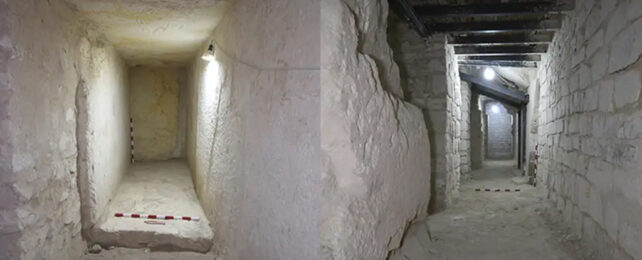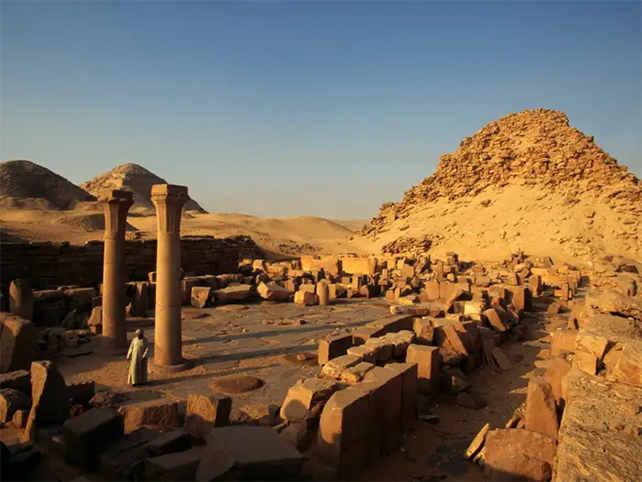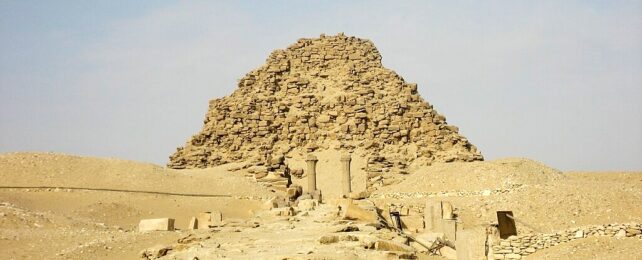In 1836, Egyptologist John Shae Perring was excavating the Pyramid of Sahure (also known as Sahura) when he noticed a debris-filled passageway.
An expert on floor plans for these types of structures, he surmised there might be storage rooms beyond.
But it would take another nearly 200 years to finally confirm his suspicions.
The hidden storage rooms
The area was so damaged it was impossible to enter, so Perring had no way of knowing if he was right.
Decades later, German Egyptologist Ludwig Borchardt ignored Perring's claims when he was excavating the site in the early 1900s. If he'd looked closer, history might have been different.
Now, a joint Egyptian-German team working to restore the pyramid has shown Perring was correct.

Using lidar, a method that applies laser pulses to penetrate obstacles like tree canopies or walls to see what lies beyond, the researchers mapped the exterior and interior passages and chambers.
Temperature changes, high humidity, and windy conditions have helped cause certain parts of the pyramid to collapse over the centuries.
Clearing some of the rubble and creating 3D maps have allowed the researchers to get a better sense of the structure, including eight previously hidden rooms off the passage Perring found.
The newly discovered chambers are likely storage rooms, meant to hold burial objects belonging to royal rulers, according to Egyptologist Mohamed Ismail Khaled from Julius-Maximilians-Universität of Würzburg, who led the restoration team.
Sahure's Pyramid
The structure is located in the Abusir pyramid complex, just south of Giza.
Sahure was a pharaoh who ruled during the Fifth Dynasty, around 2400 BCE. One document suggests Sahure wasn't of royal lineage, but was said to be the son of Ra, the Sun deity. As with other pharaohs, his pyramid stood as a monument to his rule.

The pyramid of Sahura has been excavated numerous times in the last couple of centuries.
Borchardt left a decent portion of the pyramid unexplored. In 1994, a new excavation began, uncovering huge limestone blocks covered with multi-colored images. One shows Sahure sailing on a boat, with a fleet of boats behind, with some bows decorated with lion or eagle heads.
The pyramid is falling apart
Part of the reason the pyramid is in such disrepair is due to the original construction techniques.
The core contains bits of limestone, pieces of pottery, sand, and other rubble. While it cut construction time and cost, the technique may have left the pyramid more prone to collapse, according to a 2022 study.
The latest conservation project started in 2019. The team is working to stabilize the structure, replacing crumbling supports with retaining walls.
The hope is to clean and secure the chambers and potentially open the pyramid to the public in the future.
This article was originally published by Business Insider.
More from Business Insider: